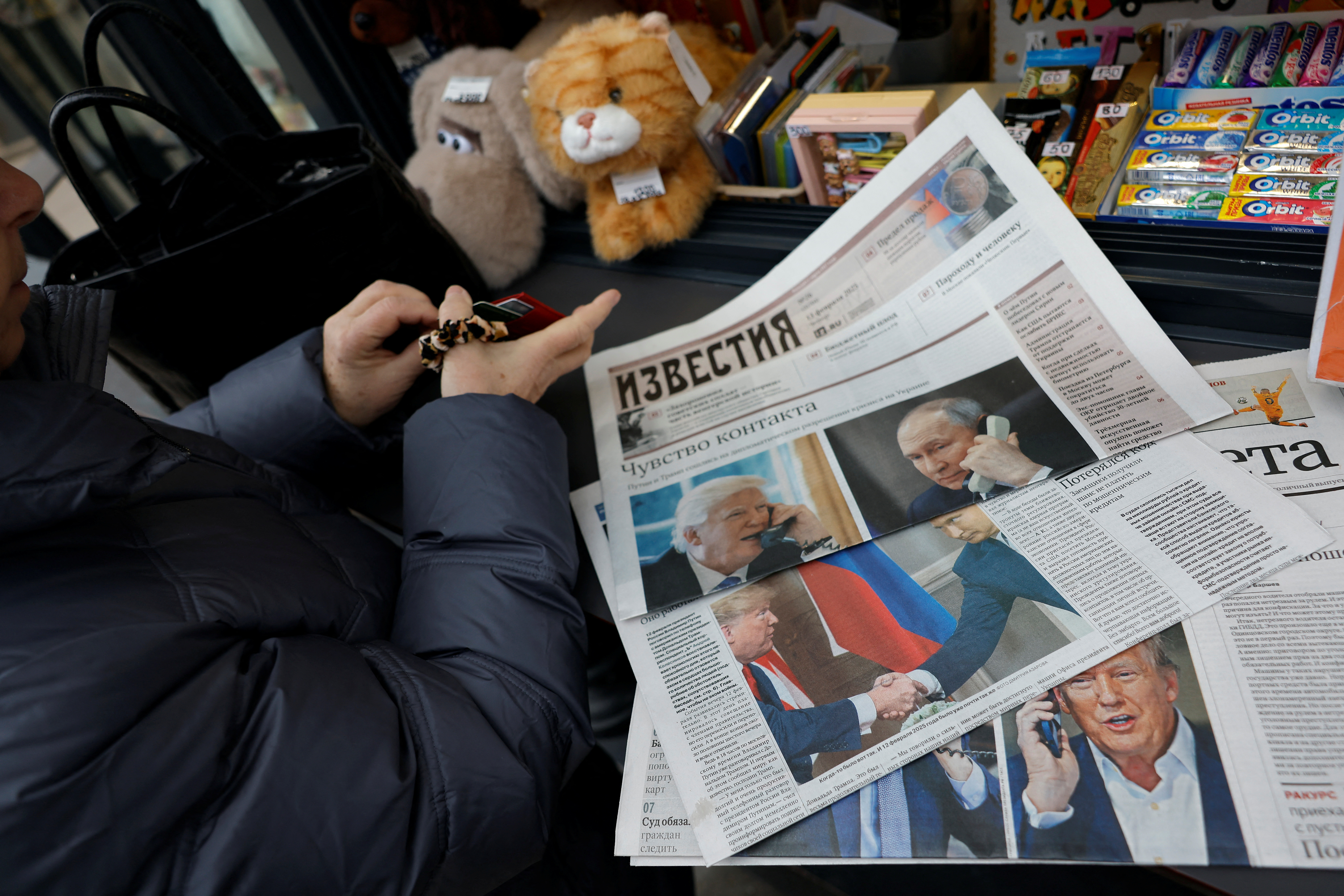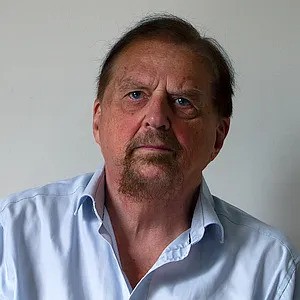It’s taking Donald Trump a little longer than the 24 hours he said he would need to end Russia’s war in Ukraine, but his 90-minute phone call with Vladimir Putin on Wednesday comes as no surprise. Neither does the fact that no Ukrainian was on the call, although Trump did brief Ukrainian President Volodymyr Zelensky about it afterward.
In some senses we are all back in the 1930s on this issue, because nobody is asking for justice or seeking the protection of international law for Ukraine. Might makes right, at least here and now, and the question is only whether Russia, with Trump’s help, is powerful enough to force Ukraine to accept a disadvantageous ceasefire.
A permanent ‘peace’ deal is extremely unlikely, because neither side has gained a victory decisive enough to achieve its full war aims: for Kyiv, the liberation of all its Russian-occupied territories including the eastern Donbas and the Crimean peninsula; for Moscow, the subjugation of all Ukraine and its reintegration into the Russian empire.
Ukraine never had a hope of recovering the territories it lost when Russia seized them in 2014. Most of their residents were ethnic Russians, descended from those who settled Crimea after it was conquered from the Tatars in 1783 or from others moved into the Donbas by the Soviet state in the 1920s and ‘30s to run the region’s new coal mines and steel mills.
Putin thought he had a window of opportunity to seize all of Ukraine in a surprise attack in early 2022, but his intelligence was faulty. Russian tanks got into the suburbs of Kyiv for a time, but the Ukrainians fought them to a standstill and subsequently recovered about 40 per cent of their newly lost territory (although none of their 2014 losses).
And that’s where the war of movement stopped, in mid-2023. All the fighting since then, with total casualties in the low hundreds of thousands on both sides (not the ‘millions of deaths’ invoked by the ignorant Trump), has yielded Russia further advances amounting to less than one per cent of Ukraine’s territory.
The war has reached stalemate, so it might as well stop for a while, and that’s what is likely to happen. A ceasefire along the present front lines will satisfy nobody, but it’s the only line that everybody can agree on – and everybody along that line will stay armed to the teeth.
What will they be waiting and hoping for? Not so much a shift in the military balance – if a threefold superiority in troops and weapons didn’t bring Russia victory, a fourfold superiority will probably not do so either – but a shift in the domestic politics in Moscow or Kyiv.
Perceived defeat acts as a solvent in any political system, and both Putin and Zelensky will be seen to have failed so the positions of both will be under threat. Zelensky is likely to go first, but Ukraine’s democratic politics offers a better prospect for an orderly transition than Russia, where a decaying oligarchy has little chance of a peaceful political renewal.
Ukraine is unfortunate to have Donald Trump as the self-appointed arbiter of its fate, for his admiration for dictators in general and his servile attitude towards Putin in particular suggest that he will not defend Ukraine’s interests very well.
However, he can’t just sell the Ukrainians down the river. They wouldn’t accept that, and his own self-image will not permit it. A different American or European leader might manage to get Ukraine a 10 per cent better deal, but the room for manoeuvre for leaders on either side is very limited. It’s the circumstances, not the people, that will define the outcome.
Meanwhile, the notion that Russia is about to embark on a campaign of conquest – “Today, Ukraine! Tomorrow, the World!” – has set alarm bells ringing in former Russian colonial possessions like Poland and bordering countries like Finland. That’s why both of those countries joined Nato, as did most of Russia’s other neighbours.
But as an actual strategy, territorial expansionism makes no sense for the real Russia of today, a de-industrialised country that makes its living by exporting natural resources and has an economy the same size as Italy’s. It can barely sustain a war with Ukraine, a country with only a quarter of Russia’s population.
So Ukraine will be put on hold for a while, and what else will Russia do in the meantime? Very little, in all probability, because it’s not really an imperial power any more. As the wars in Kenya and Cyprus were to Britain and those in Algeria and Vietnam were to France, so the wars in Georgia and Ukraine are to Russia: late imperial reflexes.
Gwynne Dyer’s latest book is Intervention Earth: Life-Saving Ideas from the World’s Climate Engineers






Click here to change your cookie preferences